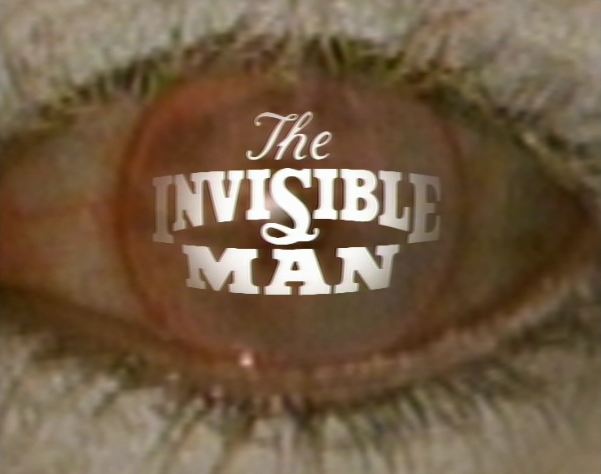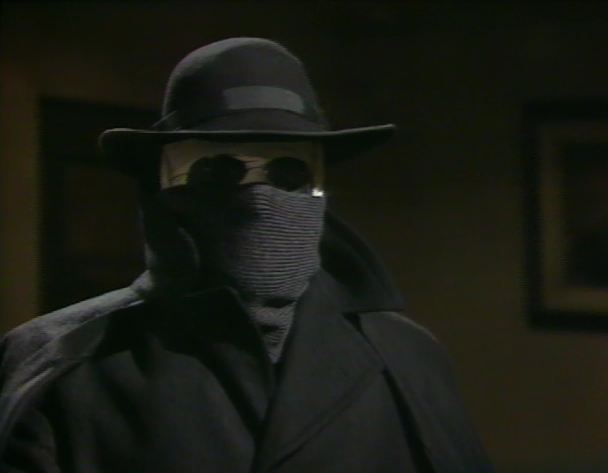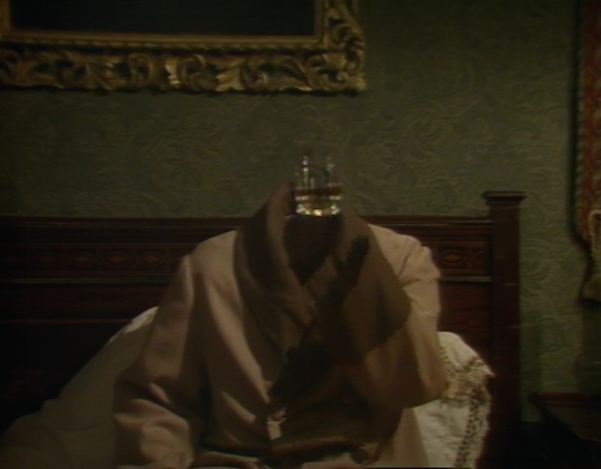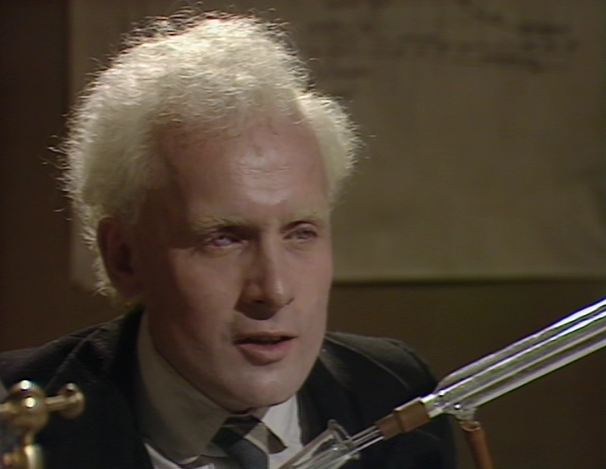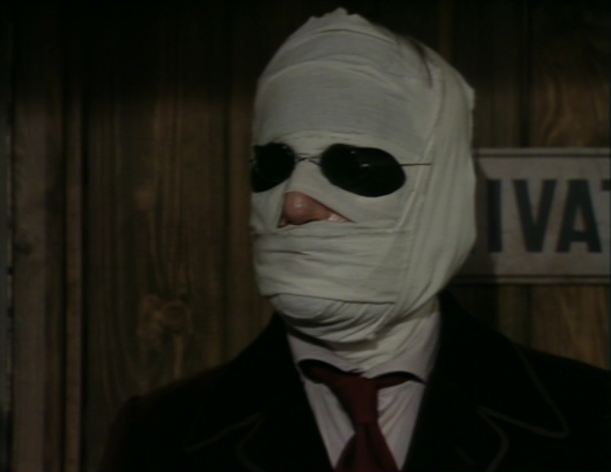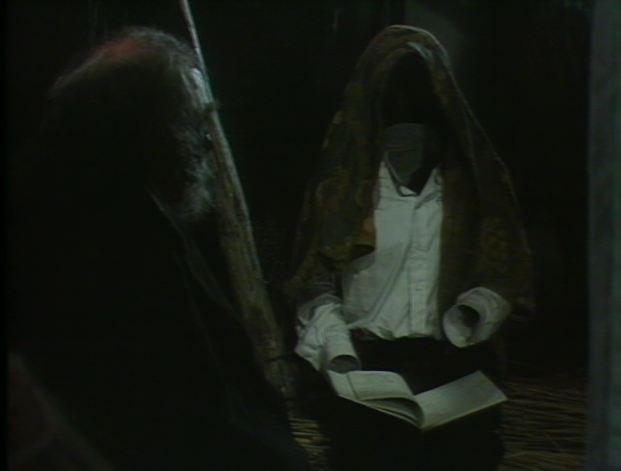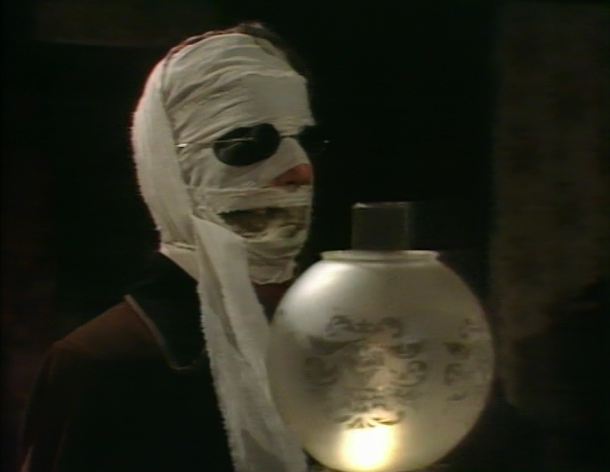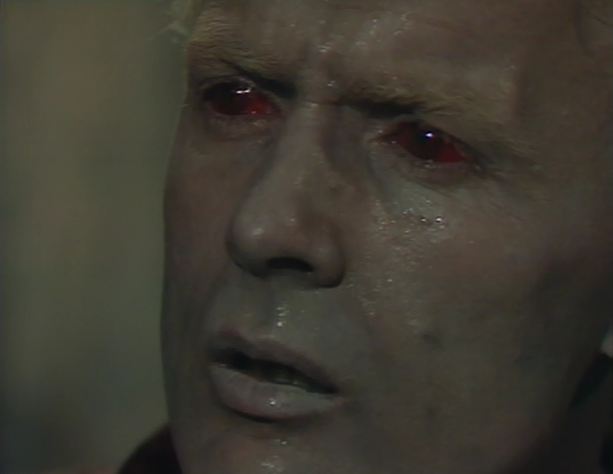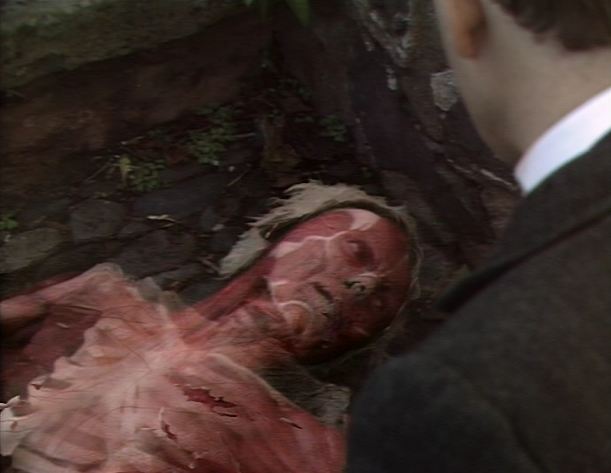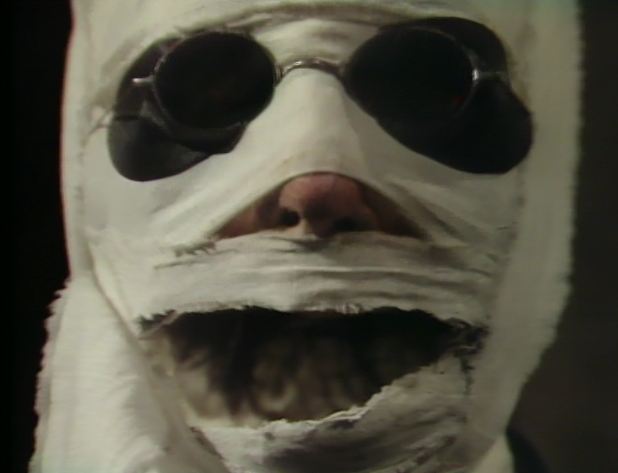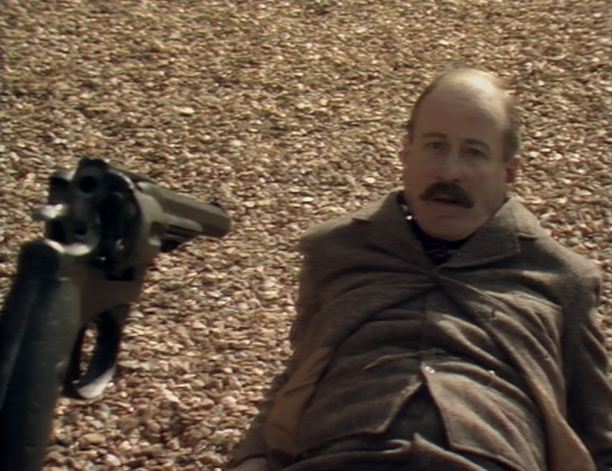Once upon a time when the BBC entered its Classic Serial mode, viewers could be guaranteed a faithful blow by blow rendering of the book in question, and The Invisible Man (1984), starring Pip Donaghy is as good example of this as can be found.
Weirdly, the BBC’s The Invisible Man was criticised in 1984 for being too faithful to the text, but that isn’t its fault. You can't win them all. HG Wells didn’t know that cinema was going to borrow from vaudeville, not classicism, and the producers were only doing their best. I believe they made an excellent job of it and I love watching this spooky classic.
Things have changed since 1984 and so has the way the BBC attacks classic text. This is due to a certain amount of power falling into the hands of writers since then. In 1984, television was an art but since the late 1990s, it has become more of a science, and refinements in the writing process have meant that viewers and critics of television expect to be judging the script above all else.
The difference has always existed in feature films, which are judged on the direction. A film like Hollow Man (2000) which has a toilet paper awful script, is still praised because of Paul Verhoeven’s direction. Whether this is wise or not, the BBC gave up faithful rendering of novels at some point in the first decade of the 2000s, and both Day of the Triffids (2009) and Kidnapped (2005) feature new characters, new settings, new endings, and hell knows what else. I don’t know how I feel about this, but I guess looking at them on a case by case basis is best.
In the case of Kidnapped (2005) the BBC adaptation is awful, and exists largely as an excuse to film in New Zealand, not Scotland. In the case of Day of the Triffids (2009) the piece is exciting but at times it bears so little relationship to the John Wyndham book that you wonder what sort of post-modern conceit is allowing them to even call the work The Day of the Triffids, when they should have just fired their CGI engines up for something else entirely new.
Our view of television production tends to be that directors don’t do very much — merely tell the camera where to stand while they shout ‘action!’ Today, it’s the writers that we think are controlling everything, probably due to the superstar writers that have emerged in the past decades, and our belief in their magic. This is wrong, but so desperate are our multi-channel broadcasting services for hits, the power has swung in the direction of the in-demand scribes who are churning out the scripts.
There isn’t any superstar writing in The Invisible Man (1984) starring Pip Donaghy. It’s so typically BBC and low budget that the script doesn’t make many allowances for points where the action dips. It’s so low budget in fact that the BBC’s The Invisible Man misses out on the snow storm at the beginning, which would seem criminal to any fan of the book. HG Wells’ book begins with these smashing words: "The stranger came early in February, one wintry day, through a biting wind and a driving snow, the last snowfall of the year, over the down… "
It makes me ask questions of the adaptation process and what it is that inspires our writers to skew off course so dramatically. In the case of Bev Doyle and Richard Kurti, the hatchet jobbers who stripped and re-scripted Kidnapped (2005), they obviously went ‘off-text’ at any point they felt Robert Louis Stevenson needed to be corrected, updated or was simply not up to their piss-low standards.
After all, Doyle and Kurti have probably both been on creative writing courses, whereas the dullard Stevenson never had a writing lesson in his life. In the case of James Andrew Hall, the few changes that he made to HG Wells’ work, seem to have been made due to budgetary constraints.
The snowstorm at the start is one example of this but there are more, the most noticeable one being the absence of the department store scene which makes up chapter 22, ‘In the Emporium’. I think ‘In the Emporium’ is my favourite chapter in The Invisible Man. First of all it places the invisible madman Griffin at the heart of the new consumer miracle, the department store, and it allows for a little comedy and clowning about.
In the Emporium also provides the reader with a more mundane and recognisable glimpse into many of the practical advantages and perils of invisibility, and best of all, is how difficult it is for Griffin to escape, despite his special power. Every story of invisibility should (to achieve satisfaction) dwell on both the great delights and deep dismays of invisibility, and the department store scene in the novel really allows for plenty of the former.
The 1984 BBC The Invisible Man is powerfully faithful to the book however, and if it loses anything it’s the fact that being invisible causes more difficulty, more claustrophobia and more peril for Griffin than you may imagine. Pip Donaghy is great, and for much of the show is all voice, and his voice is exactly correct; threatening, characterful, mysterious. When we do see Pip Donaghy playing the pre-invisible Griffin, he also looks the part, with particularly mad hair and eyes that are at times even better than Ray Milland’s eyes in X (1963) — a film which incidentally this website rates as THE BEST FILM EVER.
Back in the 1980s, and for long before that, the BBC had always screened their Classic Serial strand on a Sunday afternoon, and indeed it was in there that their original Kidnapped (1978) was first seen. This version of Kidnapped (starring David McCallum as Breck and Patrick Magee as Ebenezer) is lost in the mists of time, never to be repeated, although it is still remembered fondly by many nostalgists, fans and television buffs; certainly the music can still send a shiver down many a Scots spine.
It was this same Classic Serial strand that brought us The Quatermass Experiment from 1953 and the 1954 adaptation of George Orwell's Nineteen Eighty-Four. The BBC Classic Serial strand became something of an institution in Britain until the early 1990s. The Invisible Man however got off to a rocky start as it was deemed to be too horrific for Sunday afternoons, and so it was broadcast on BBC2 Tuesday evenings, and died there.
This quote is from the Wikipedia article on the BBC Classic Serial adaptation of The Invisible Man:
Viewing figures declined steadily as the series progressed, with many complaining that the storyline's pacing was too slow, the episodes were too short, and that the novel was not well-suited to this form of serialization, many arguing that its faithfulness was its main weakness.
A Television Audience Broadcasting Report from BARB data stated that "The series was often considered slow and boring... and unredeemed by the quality of the acting or the production".
This would seem a shame when in fact at least one extra character has been shoved in, in this case Griffin's college professor, Professor Hobbema, who is created for a scene in which Griffin expounds his notions of invisibility. Ironically it’s one of the best scenes in the piece, as so much hinges on it. In that scene we are introduced to the ambitiously mad young Griffin, and he gets off to a flying start, arguing with his tutor and abandoning social norm.
The other great two handed scene in the BBC’s The Invisible man takes place in the house of Griffin’s former colleague Kemp (played very nicely by David Gwillim, who is still going strong on British television). There was a time, when if you had two highly accomplished actors, you could do anything. Thinking about it now this scene is really just Gwillim’s as he is acting to an empty dressing gown most of the time. It is brilliantly climactic, and it’s all down to that intensity of expression that David Gwillim can muster — he believes so we also believe.
In the case of the BBC there are some things you can always rely on, and the first of these is music. The score for the 1984 The Invisible Man by Stephen Deutsch is pure magic and highly evocative of the era. Although Stephen Deutsch didn’t work on Doctor Who, the music sounds so familiar from this series, that even if it wasn’t written by him it was probably performed by the same musicians as performed Dr Who incidental music, and record by the same engineers in the same studio.
Also, The BBC could always also be relied upon the create memorable title imagery back in those days, and in the first image anyone sees of The Invisible Man in each episode, he is hurrying across the downs, in a melodramatic camera shot that looks like something straight out of Ripping Yarns.
It’s a shame that like many things, this adaptation is lost from view and never to be repeated, although somebody should set up a channel just for this type of thing. It does mean however, that if you do read the book, you can always treat yourself afterwards by renting or purchasing this — a fine treat so long as you are prepared for the story, the whole story, and nothing but the story.
Credits for the BBC 1984 adaptation of The Invisible Man
YouTube playlist showing BBC 1984 THE INVIISBLE MAN starring Pip Donaghy

